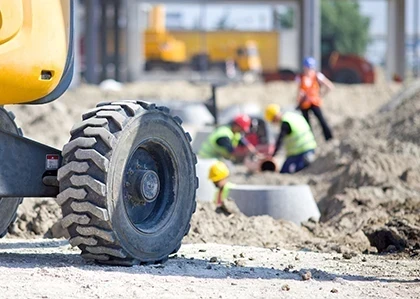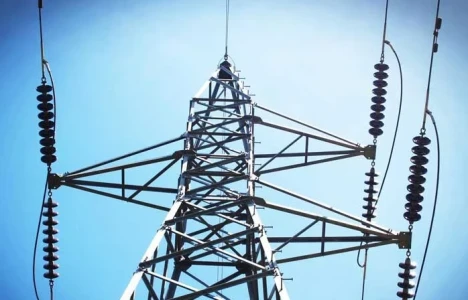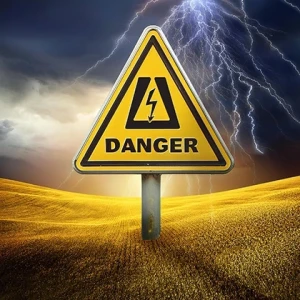Utility Safety Standards
FERC Complaint Targets Duke, PJM Transmission Planning
How to Prevent Struck-By and Backover Incidents
Utility Safety Standards

Flame-Resistant Clothing Misconceptions
Misconceptions about using flame-resistant clothing
BY DAN BONELLI, Cintas Corporation
According to Michael Hyland, chair of the National Electrical Safety Code (NESC) and vice president of engineering services with the American Public Power Association, a 1970s electrical utility commercial depicted a worker sporting a gold necklace and polyester clothing. Hyland notes that today, that type of dress would be unthinkable, as it poses a huge risk to residential, commercial, and industrial electricians.
The power industry...
Related Articles

How to Prevent Struck-By and Backover Incidents
Struck-by, struck-against and back-over incidents are far too common: 421 Hudson St., Manhattan, NYC: Construction worker killed by scaffolding plank. Woods Hole Golf Club, Falmouth, MA: Construction worker injured in back-over accident. Interstate 440-East, Raleigh, NC: DOT workers seriously...

Electric Utility System Standards
How Ontario regulation can improve electrical safety BY BILL KHASHFE, London Hydro According to an Ontario Electrical Safety Report, 35 percent of the province’s electrical-related fatalities in the past 10 years were attributed to power-line contact. Equipment specifications and electric utility...

North Carolina Town Sues Duke Energy for Climate Fraud
A small town in North Carolina has filed a lawsuit against Duke Energy, one of the largest utility companies in the United States, alleging that the company has been deceptive in its efforts to downplay the environmental impact of its operations. The lawsuit, filed by the town of Smithfield, claims...

Flame-Resistant Apparel for Utility Workers [VIDEO]
Selecting the right FR clothing is the first step. Glen Raven is a global leader in high-performance, inherently flame-resistant protective and hi-visibility fabrics for the utility, petroleum and industrial apparel markets. The health and safety of the men and women in these dangerous...

New York's Path to 8.5 GW of Grid Flexibility by 2040
New York State's transition to a clean, zero-emissions energy grid could include up to 8.5 gigawatts (GW) of grid flexibility by 2040, according to a new report from the Brattle Group. This projection, while contingent on achieving ambitious decarbonization goals, illustrates how the state could...

FERC Complaint Targets Duke, PJM Transmission Planning
A coalition of large energy consumers and ratepayer advocates has filed a complaint with the Federal Energy Regulatory Commission (FERC), urging the agency to prohibit transmission owners from independently planning "local" transmission projects exceeding 100 kilovolts (kV). The coalition argues...

Texas PUC Shelves $1B Grid Credit Mechanism
The Public Utility Commission of Texas (PUCT) has unanimously decided to shelve the proposed $1 billion Performance Credit Mechanism (PCM) for power generators, concluding that it would not deliver the anticipated grid reliability benefits. The PCM was conceived as a means to incentivize power...

How Dangerous is Linemen Work?
Many occupations pose risks to workers, but few match the dangers that linemen face daily. Linemen play a critical role in maintaining and restoring the power grid, often working in extreme weather conditions, at significant heights, and around high-voltage electrical systems. Their work is...

North Carolina Town Sues Duke Energy for Climate Fraud
A small town in North Carolina has filed a lawsuit against Duke Energy, one of the largest utility companies in the United States, alleging that the company has been deceptive in its efforts to downplay the environmental impact of its operations. The lawsuit, filed by the town of Smithfield, claims...

FERC Approves Interconnection for Talen Energy, Amazon Data Center
In a significant move that underscores the growing demand for reliable and sustainable energy to power the expanding digital infrastructure, the Federal Energy Regulatory Commission (FERC) has approved an interconnection agreement between Talen Energy, Amazon Web Services (AWS), and Exelon. This...
